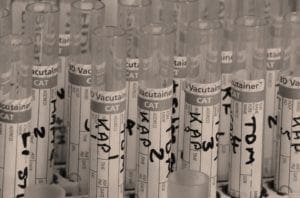Drug-Testing Industry Heavily Invested in Keeping Pot Illegal
This article was featured in our weekly newsletter, the Liberator Online. To receive it in your inbox, sign up here.
The US government’s war on drugs has always counted with a great deal of support coming from a variety of special interest groups. Crony capitalism, it seems, is always to blame. But while libertarians have always known that, the media is just now realizing that there are more special interest groups involved with the drug war than they had previously thought.
 Too bad mainstream news sources often misdiagnose the root of the problem.
Too bad mainstream news sources often misdiagnose the root of the problem.
According to an extensive ATTN article, the drug-testing industry is one of the most powerful opponents to weed legalization in America, along with the private prison industry, law enforcement, and big drug companies.
In the ATTN piece, the writer gives inside information on the history of cronyism involving the drug-testing industry and the US government. It also explains that several former DEA administrators are now part of nonprofits that advocate and actively lobby for drug-testing in Washington to remain relevant. The piece also explains that while federal agencies were bound by law to implement drug-testing programs in the 1980s due to the passage of the Drug Free Workplace Act, government agencies were the first to be hit with the government’s recommendations regarding drug-testing policies, thanks to an executive order issued by the President Ronald Reagan administration.
“Urine tests,” the article explains “didn’t become a common workplace practice in the U.S. until the 1980s,” which is when the Reagan administration began requiring federal government employees to be tested. This statement implies that the entire drug-testing industry may have not had as much influence as it does now if not for a string of orders and regulations that require organizations to use their services.
To Jason Williamson, a senior staff attorney at the American Civil Liberties Union’s Criminal Law Reform Project, “passing or failing a drug test has no bearing on whether or not they’re going to be impaired at the job two weeks later.” This “piece of the puzzle,” Williamson told Attn.com, is huge, and a major reason why “drug-testing companies don’t need or want to talk about” the real implications of their services.
According to a 1985 study shared by the Drug and Alcohol Testing Industry Association, airline pilots using flight simulators after smoking marijuana showed signs of impairment 24 hours “after usage.” But in a more recent government-sponsored study from 1989, researchers found that the psychoactive effects of cannabis use “wore off after one to four hours.” Proving that the largest drug-testing industry trade group in the country might have been helping these firms do business with countless organizations and government agencies without addressing the problems brought up by pro-marijuana legalization activists.
A quick search on the Center for Responsive Politics website shows that, to this day, organizations associated with DATIA such as Quest Diagnostics are actively—and heavily—involved with Washington politics.
According to a 2012 Reason piece, another organization known as the Drugs of Abuse Testing Coalition spent thousands lobbying for “Medicare reimbursement … and payment rates for qualitative drug screen testing.”
Targeting crony capitalism and its negative consequences, even when the subject is the drug war, could help us clear away the fog, giving advocates access to the real roots of the government’s ineffective drug war and how to solve the problem.
